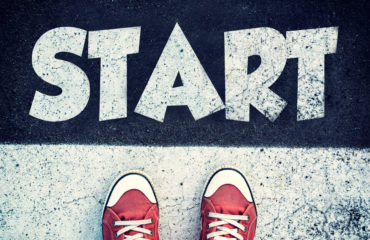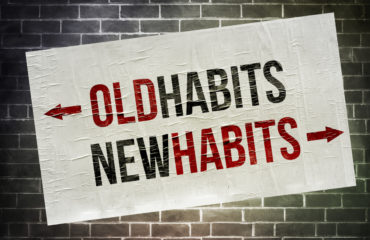The Most Effective way to consume Caffeine.

Greatly socially accepted, caffeine has become a large part of our daily rituals to increase productivity. Caffeine use is so common, that most canadians simply cannot get enough, and often forget that it is a drug. Caffeine is in our coffee, teas, soft drinks, and energy drinks. Most make daily habit of consuming these drinks on the regular. Studies show that as much as 85% of canadians habitually consume Caffeine.
Making the jump from drinking caffeine habitually, to strategic is a difficult move to make. However, doing so will make caffeine more effective, and long term healthier on the body.
By skipping on nutrition, and relying on external sources of borrowed energy it is dangerous to assume that health and energy will be just waiting for you to come back after you crash and burn. Caffeine use makes it easy to borrow energy from later in the day, when your dues will have to be paid.
Heres what you need to know:
- Caffeine is in almost everything we drink, it is important to be aware of our Caffeine consumption.
- There are certain rules to Caffeine consumption.
- There are certain periods in the day, when you should strategically consume Caffeine.

Caffeine is in almost everything we Drink.
Naturally found in coffee, and teas, caffeine is in more things than we realize.
Famous for its stimulating properties, caffeine has been used in our beverages and medications for hundreds of years. The moment caffeine is absorbed into the bloodstream, you may feel a wide awake experience, a temporary increase in memory, focus, mood, reflexes, and comprehension. It can be seen why this drug, can be so easily addictive. Even deprived of sleep we can see these effects. This has lead us to live in a society fueled by caffeine, and a lack of sleep.
40% of canadians are affected by sleep disorders, and caffeine just masks some of the symptoms causing us to completely avoid the problem and symptoms. With a healthy diet, exercise, and proper amount of sleep we are able to get more done effectively, without losing focus on even the most mundane tasks.
There are certain rules to Caffeine consumption.
Consume caffeine habitually, and you are certain to see the adverse affects of this drug. Health Canada states that 60 percent of Canadians consume caffeine through coffee, 30 percent through teas, and the remaining 10 percent through other means such as soft drinks, energy drinks, and certain medications.
These choices all make caffeine easy to include in daily rituals. If you wake up tired, caffeine can allow you to cheat yourself from feeling the effects of sleep deprivation.
The major problem with caffeine dependence is that it is easy to overlook. The body adapts to how much caffeine it consumes. Consume one cup of coffee is each morning, and the body will slowly adapt to that amount of caffeine until it becomes the new “normal”. At first when the body goes from no coffee, to drinking one cup a day, there will be a significant boost in energy. However, the body quickly gets used to that amount of caffeine. To see a comparable energy increase, you will then need to drink two cups of coffee every morning because the body has adapted to drinking one. If you continue to drink only one cup of coffee every morning, science shows that the effects will be no better off than when you started.
In addition to caffeine dependence, too much caffeine can cause adverse effects. These effects include insomnia, irritability, dehydration, dizzy spells, diarrhea, and even body shakes, and convulsions. Consuming caffeine aggressively, can be seen as dangerous. It is recommended to consume no more than 400mg of Caffeine per day, according to Health Canada. Caffeine is a drug, and its adverse effects, are not to be taken for granted.

There are certain periods in the day, when you should strategically consume Caffeine.
Making the jump from drinking caffeine habitually, to drinking it strategically is difficult to make. Taper down your intake if you are consuming caffeine daily. If you drink coffee, begin filling each cup with a quarter of decaf. Do this gradually until you lean down your caffeine intake to zero. You want to get the body used to not having to rely on caffeine for energy.
If you taper down slowly, you should not see much of a difference. The great thing from doing this is, that when you do consume caffeine, you suddenly have access to a large amount of energy. This energy is here for you to summon when you need it the most.
Most Canadians, consume caffeine habitually in the morning by going to grab their “Timmies” (Tim Hortons coffee), However now you can save caffeine for when you face the most demanding challenges.
If it makes sense for workplace productivity, consume caffeine between 9:30 am to 11:30 am to have the greatest impact on your daily performance at work, and not face an afternoon crash. Especially if you wake up between 6 and 8 am. When you naturally have less energy, you boost yourself with caffeine, increasing productivity.
Depending on your schedule, you may want to consume caffeine at different times. However, be aware that caffeine takes eight to fourteen hours to clear your system. It is important you have caffeine out of your system before you go to sleep.
Conclusion:
When it comes to effectively consuming caffeine, it is important to remember not to make it a habit and be aware of our dependance on it for energy. Limiting caffeine intake to less than 400mg will help prevent any adverse side effects.
To get the most out of caffeine’s boost in energy and productivity time your caffeine intake closer to the middle of the day. This will give you a boost of energy when you naturally have a decline increasing productivity.
Extra Tips:
- Do not drink any sugary or alcoholic caffeinated beverages. These will only cause you to crash quicker, and harder.
- Be careful about caffeine consumption around creative tasks. Caffeine decreases creativity levels.
- Find an ideal caffeine delivery system. Green Tea is excellent. This is due to being full of Antioxidants, and L-Theanine, which ease the caffeine crash afterwards.
- Do not habitually consume Caffeine as part of a routine. Period.
- Use the energy crash strategically, Consume caffeine twelve hours before a long flight, and you can crash just in time to sleep all the way through your flight. You can also time your caffeine intake to crash at your desired bedtime.
- Create a habit out of a healthy morning ritual, void of caffeine. Utilize exercise, sleep, and proper nutrition to start your day with energy and focus.
References:
http://www.apa.org/monitor/2008/04/caffeine.aspx
http://www.livestrong.com/article/245410-list-of-foods-drink-that-contain-caffeine/
http://www.cbc.ca/news/canada/british-columbia/sleep-disorder-ubc-1.3294306
http://www.besthealthmag.ca/best-you/health/canadians-addicted-to-caffeine/
The Productivity Project, Bailey, C. 2016











